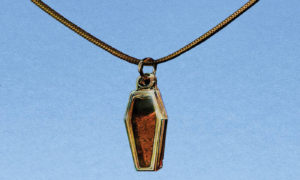 Generationals’ new album Heza is built on crisp production and undulating synths. The album possesses a sort of sheen and sparkle that’s captivating and memorable. Though not quite beachy, Heza does contain a summery quality; though not quite gritty, it possesses plenty of texture. Heza is a city sidewalk in the spring, covered with hundreds of coins glinting in the sunlight.
Generationals’ new album Heza is built on crisp production and undulating synths. The album possesses a sort of sheen and sparkle that’s captivating and memorable. Though not quite beachy, Heza does contain a summery quality; though not quite gritty, it possesses plenty of texture. Heza is a city sidewalk in the spring, covered with hundreds of coins glinting in the sunlight.
Since their debut album Con Law, the band has both maintained and greatly refined their distinct sound. Heza offers some of their most chilled out grooves to date. Much of the 50s pop infused into earlier recordings has faded—still present but harder to tease out. 80s pop seems to dominate more of the landscape than any other decade. The band opens with the quick, hooky “Spinoza,” the album’s most upbeat song. The only issue with this song as the opener is that it may not represent the forthcoming songs, as Generationals depart from blatant pop to more subdued grooves for most of the remaning tracks.
“Extra Free Year” gives us a mellow, electric pulse and sparse, dark piano chords over deconstructed guitars. The duo channels New Order on “Say When,” which has an outstanding, skittering synth loop at the chorus transitions. The song feels like it could have been taken up a notch in energy. However, the laid back groove of “You Got Me” works perfectly. At first wary of the song’s repetitious simplicity, I have to admit the track’s catchy quality. With a chorale-inducing refrain and bouncing keys the band employs so well, it’s the kind of song that much of the listening public will immediately adore–ripe for parties and live music venues. If you’re waiting for something to change in its almost five minutes, it won’t, but if you’re content to ride the chilled out wave or as Sunday afternoon apartment-cleaning music, it’s spot on.
The band does everything right on “Put a Light On,” as the fragmented tatters of pop, relaxed grooves, and shining flourishes from the preceding tracks all converge excellently. Handclaps punctuate varyingly compressed and falsetto vocals as bell-like chimes ring out. This is the album’s centerpiece, and everything is clicking. After moving through the T-Rex guitar tone driven “I Never Know,” we get the lighter than air melodies of “Awake,” which sounds a bit like super stripped down Arcade Fire.
“Kernal” represents the band’s most experimental reaches, stretching almost into tribal beats and reggae guitars. Again a track of which I was initially skeptical won me over with the effects-laden guitar that expands the song in the final minute and the understated tambourine that carries it through the end. “I Used to Let You Get to Me” returns to the guitar-guided indie-pop of “Spinoza” before closer “Durga II.” I don’t know what happened to “Durga I,” but I want to, because this is one hell of a closer—meandering through sweet melodies and background coos. On the chorus, lead singer Ted Joyner smoothly sings, “You’ve got to come to my rescue once in a while/ I know you like to phone it in/ but can you give a little backbone to it?/ It’ll go a long way,” like some sort of indie-rock Billy Joel. The track feels like a late 70s/early 80s ballad, totally diverging from the preceding songs.
Heza possesses varied understandings of pop music and draws from a variety of decades. The result is an imperfect and slightly uneven record, but one that is a hell of a lot of fun—one that will grow on you as you uncontrollably return to it. It’s a bit addicting and, ultimately, highly convincing in that regard.










